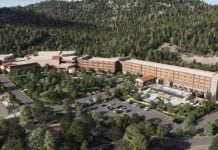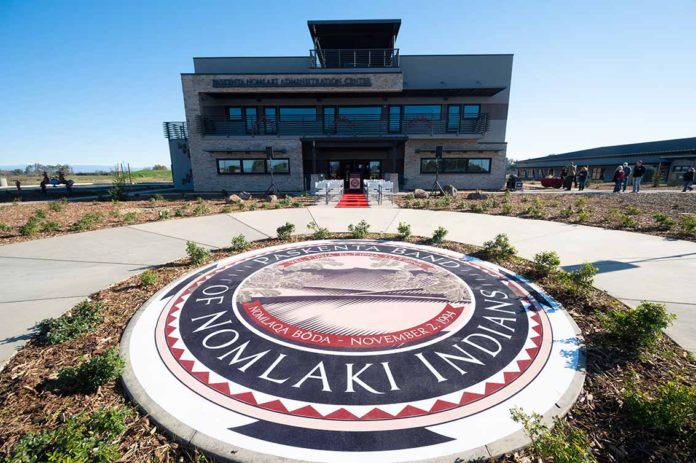CORNING, CA – The Paskenta Band of Nomlaki Indians recently celebrated the 30th anniversary of restoring its tribal sovereignty. On November 2, 1994, the tribe was officially re-recognized by the federal government, marking a momentous occasion in its history and beginning a new chapter of self-determination, sustainability, and sovereignty.
For generations, the Paskenta Tribe has been an Indigenous inhabitant of Tehama County and the surrounding region. Despite losing federal recognition as a sovereign nation in 1959, the tribe has persevered and resiliently maintained its tribal identity and cultural roots. The restoration of sovereignty in 1994 represented the culmination of years of tireless advocacy and the unwavering commitment of tribal leaders and members to reclaim their rights and privileges.
“This anniversary embodies the strength and resilience of the Nomlaki people and those who came before us,” said Tribal Chairman Brandin Paya. “We honor the sacrifices of our ancestors, who fought for our recognition and sovereignty, and we celebrate the remarkable progress made over the past 30 years. We are devoted to creating a brighter future for generations to come.”
As a federally recognized tribe, the Paskenta Band of Nomlaki Indians has once again exercised jurisdiction over its lands and people. Four years after gaining re-recognition, the Paskenta Tribe repurchased over 2,100 acres of their aboriginal land near Corning, CA.
The Paskenta Band of Nomlaki Indians has made significant strides in self-governance, economic development, and cultural preservation. Over the last 30 years, the Paskenta Tribe has established essential government services, created opportunities for its members and the surrounding community, and revitalized its cultural traditions.
Over the past 30 years, the Paskenta Tribe has achieved notable success in enterprise development. Recent accomplishments include the expansion of Rolling Hills Casino & Resort, the addition of an outdoor amphitheater, and the acquisition of Mad River Brewery and Tepa Companies. Tepa operates independently and collaboratively to deliver comprehensive construction, engineering, environmental, industrial, and technology services. Additionally, the Paskenta Band of Nomlaki Indians became one of the first tribes to establish a fully operational combined brewery and distillery from the ground up.
The Paskenta Tribe has demonstrated a strong commitment to community wellness and economic growth through initiatives like the Rolling Hills Clinic. Last year, the clinic served over 55,000 patients, establishing itself as an essential provider of accessible, quality healthcare in the region. Additionally, with around 1,000 employees in Tehama County, the tribe and its enterprises have created numerous jobs, contributing significantly to the local economy.
Earlier this year, the Paskenta Band of Nomlaki Indians broke ground on a $32 million microgrid project, enabling the Paskenta Tribe to advance its energy sovereignty, sustainability, and self-reliance. This microgrid project is marked as one of the largest state grants ever awarded to a Native American tribe.
The Paskenta Tribe also plays a prominent philanthropic role in the region through the Paskenta Nomlaki Foundation, raising hundreds of thousands of dollars for community organizations annually, with over $9 million donated to support local health, safety, and education programs. Notably, the tribe conducts an annual food distribution event, providing food for between 1,500 to 2,000 families. In addition, they donate fire trucks to the local community, recognizing the area’s high fire alert status. The tribe has also created scholarships like the STEM scholarship, offering financial opportunities to students pursuing studies in science, technology, engineering, and mathematics. These initiatives are just a few examples of the tribe’s commitment to making a positive impact on the community.
Today, the Paskenta Tribe has close to 300 members and is continuing to grow, as half of its population is under the age of 25. With most members living near tribal lands, the Paskenta Band of Nomlaki Indians have a strong vision for the future of their people and community.













































